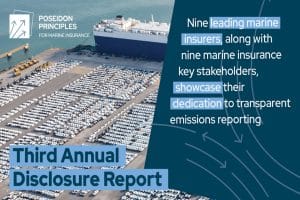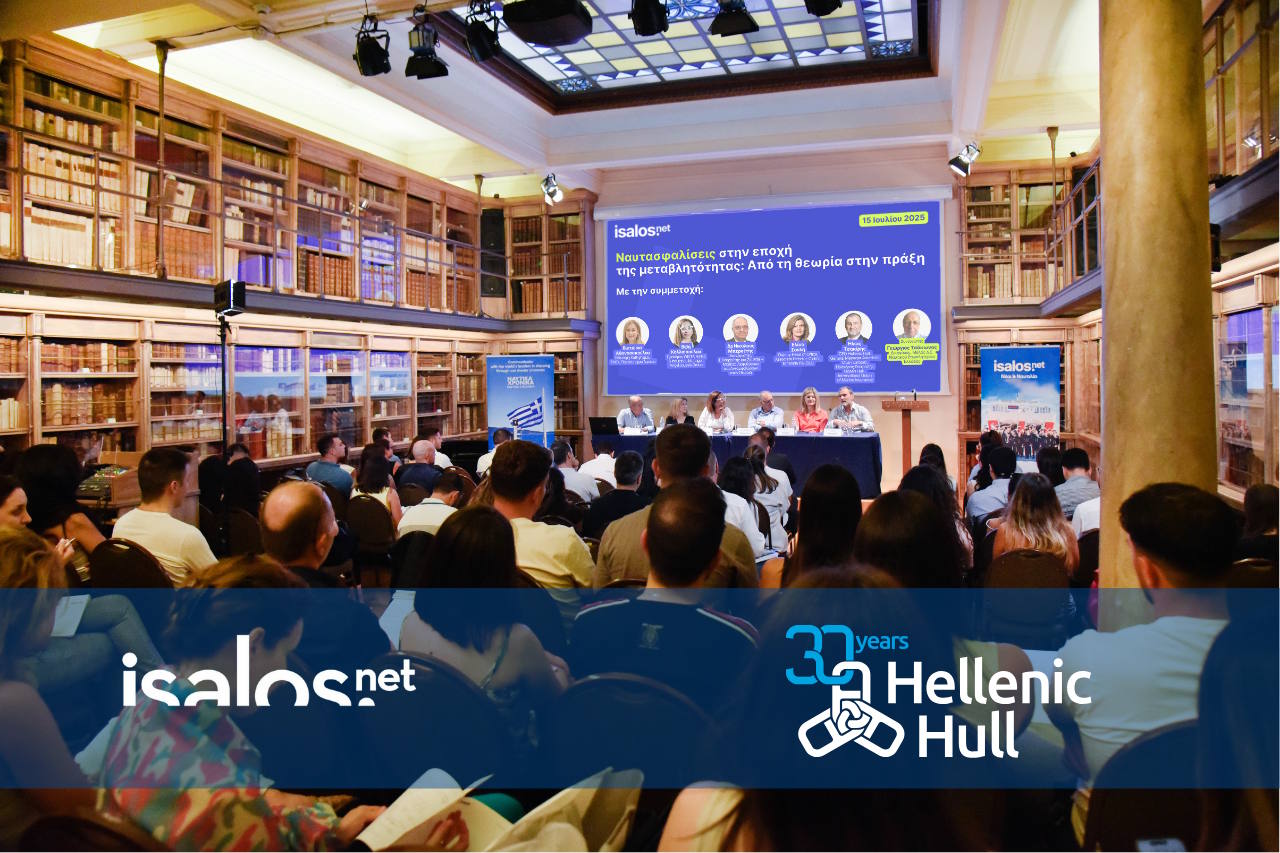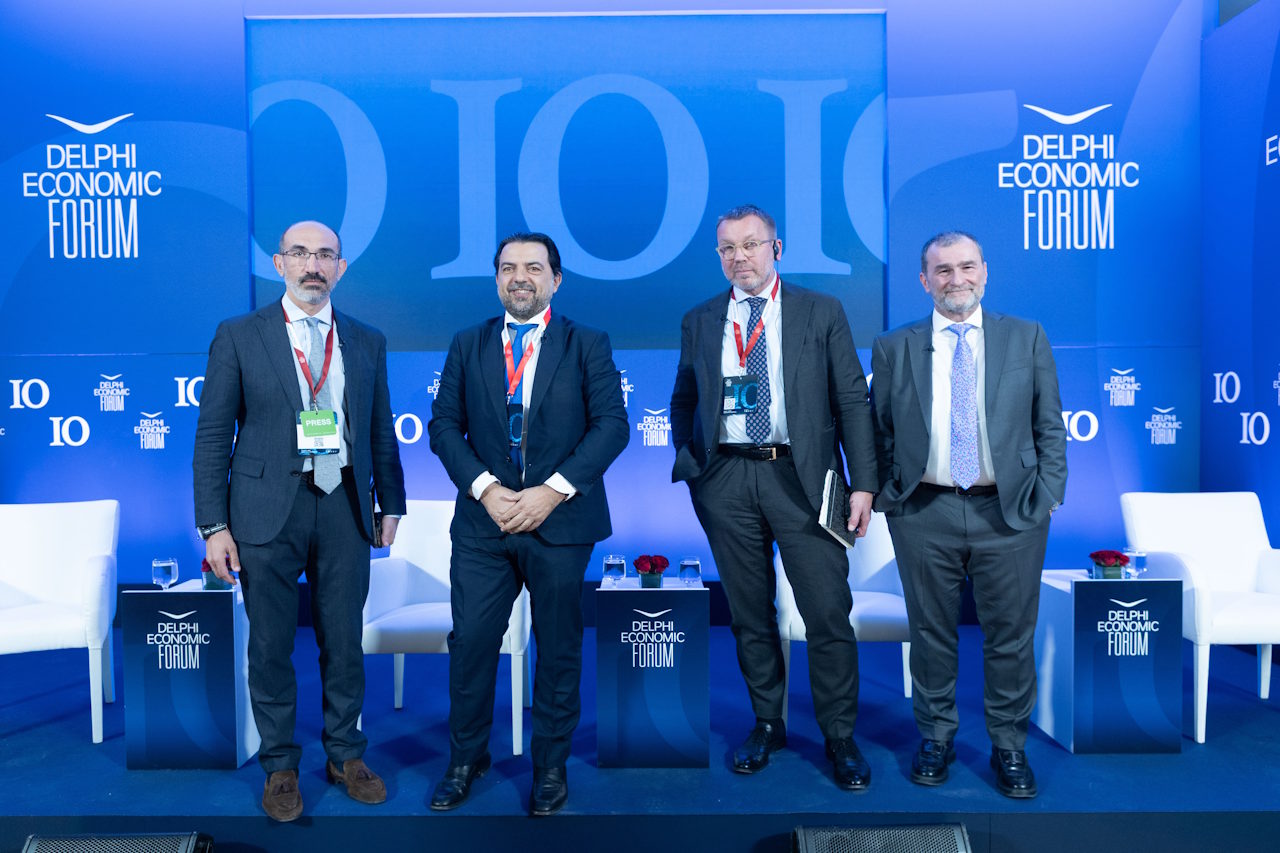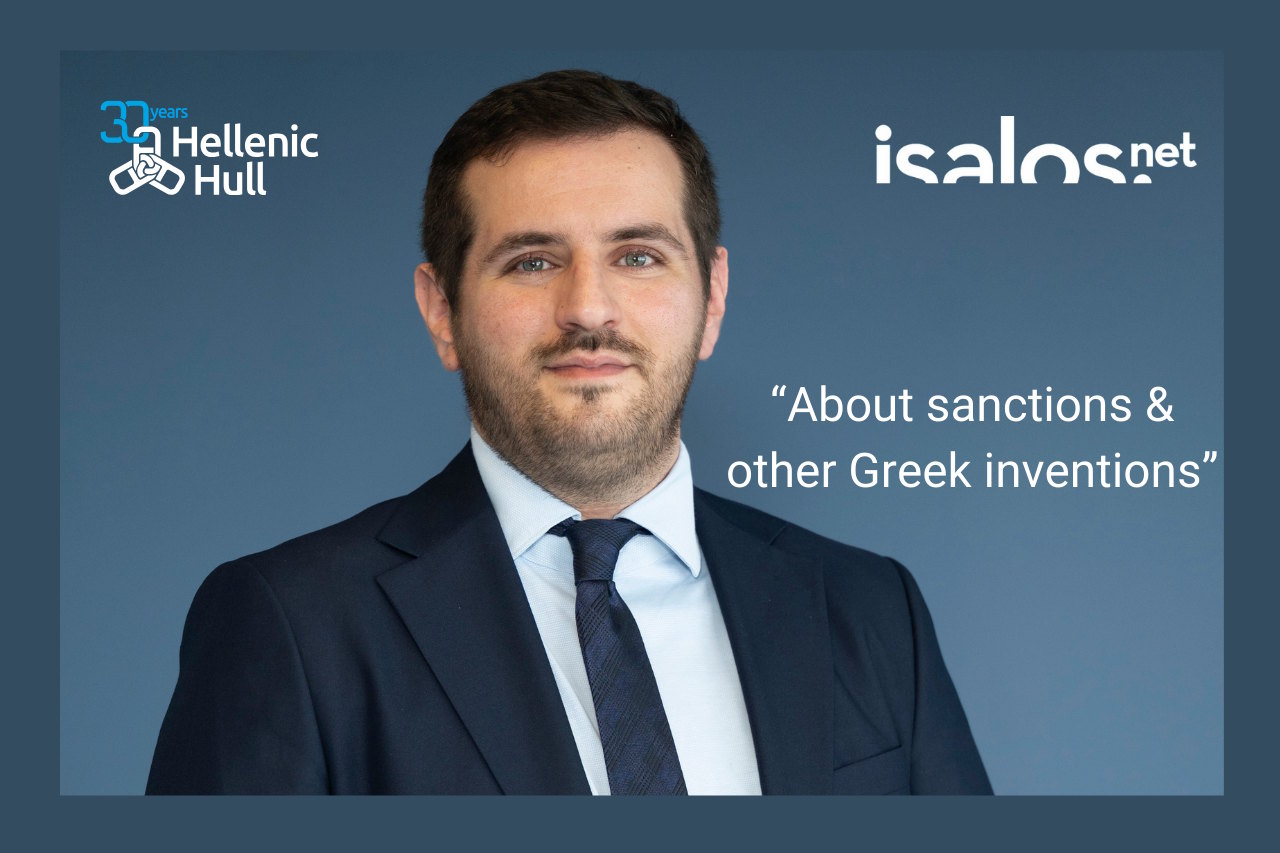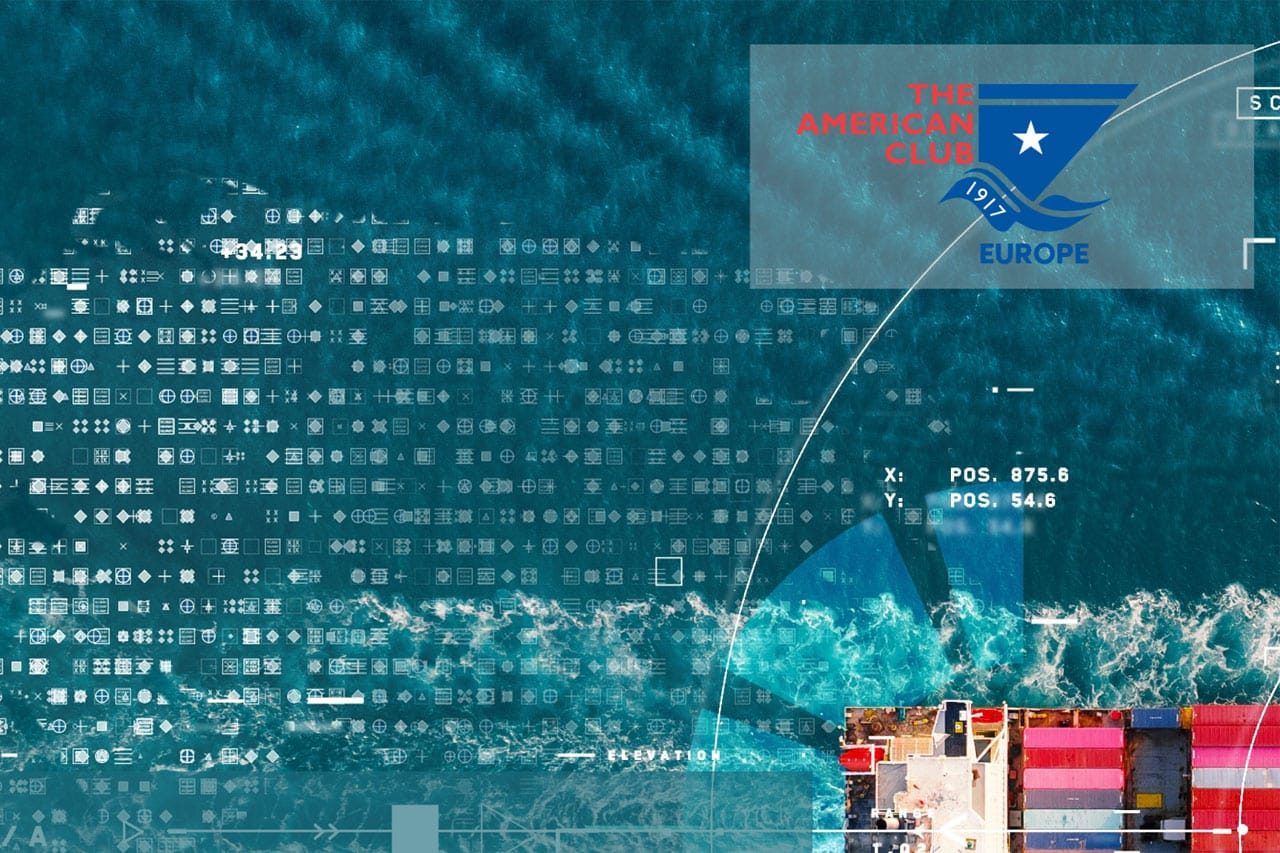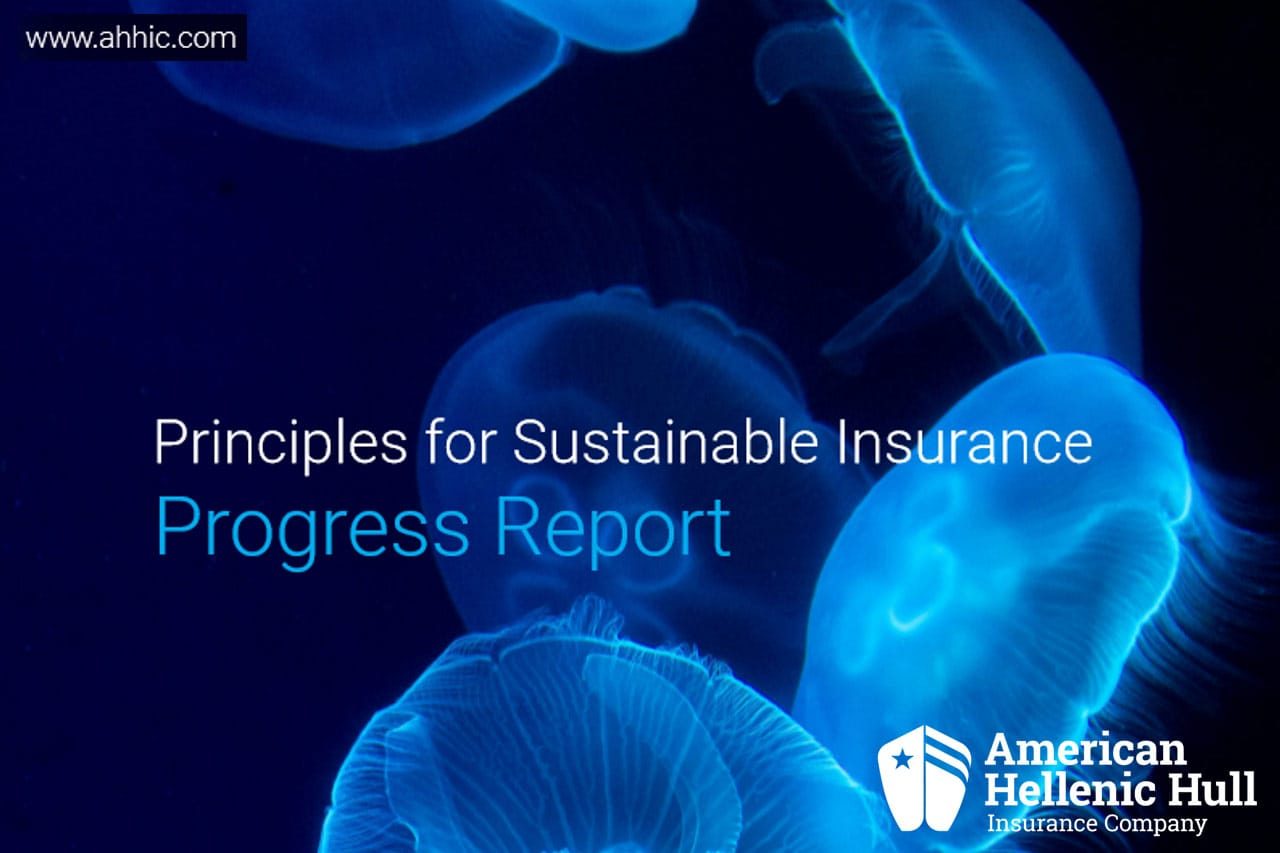Global ocean hull premiums rose in 2022 by 5.7% to reach USD8.4 billion. This was largely due to a combination of growing activity, increased vessel values and reduced market capacity. Claims for the same period remained moderate although early 2023 has witnessed a modest increase. Taken together, this has had a positive impact on overall loss ratios that have enjoyed a downward trend for the past three years with 2022 ratios starting out at the lowest point since 2015.
In order to support the transition towards a greener maritime industry, the IMO aims for a 5% uptake of zero or near-zero GHG emission technologies, fuels, or energy sources by international shipping by 2030, with a striving target of 10%. This emphasis on adopting cleaner technologies and fuels will contribute to the overall reduction of emissions from the sector.
We, at Hellenic Hull, welcome IMO’s new targets as we believe in being proactive to achieve a more sustainable future for all. As early as 2019, we recognized the forthcoming challenges and took steps to align our operations with global sustainability initiatives.
In line with the United Nations’ 2030 Agenda, we have launched a network of international collaborations with organizations such as the UNEP Finance Initiative, Principles for Sustainable Insurance, Sustainable Blue Economy Finance Initiative, Ship Recycling Transparency Initiative, UN Global Compact, Net Zero Insurance Alliance, Poseidon Principles for Marine Insurance, and the World Maritime University.
Despite this relatively good news, inflation is likely to have a significant affect going forward. Ilias Tsakiris, Chair of IUMI’s Ocean Hull Committee explains:
“During the post-Covid period, there was a scarcity of materials such as steel coupled with an increase in their demand following the re-activation of global shipping. This was exacerbated by rising inflationary pressure, which has driven up the costs of materials, shipyards, and labour. From an underwriting perspective, inflation has not only been applicable to vessel repairs and claims but also to general office overheads. In the main, the underwriting community has not applied inflationary increases to the premium base and this may lead to a reduction in overall profitability over the coming year or two.”
Aside from inflation, three other key issues are currently demanding attention from hull insurers:
Alternative fuels
Looming 2050 targets for greenhouse gas (GHG) emissions; newbuilding projects focusing on dual-fuel systems; evolving IMO guidelines; and international sustainability initiatives, are the key drivers for the industry’s search for viable alternative fuel technology solutions. In the interim, hybrid technologies such as hydrogen/fossil fuel or ammonia/fossil fuel are likely to be employed until a fully clean and workable solution is developed.
Ilias Tsakiris explains the implications for hull underwriters:
“Emission reduction technologies are inevitably more sophisticated than the current methods of ship propulsion. This will increase the value of the global fleet and, consequently, the level of risk to be covered. The rapid implementation of these technologies aligned with decarbonization and GHG emissions, particularly where new fuel blends may be used with current engines, will give rise to new risks. Adequate regulations will need to be in place to ensure the safety of those who operate the new ships as well as the vessels themselves. Of course, this also means that we need to train the global seafaring work force accordingly.”
He continued:
“We must also remember that shipping doesn’t exist in isolation. Vessels call at ports across the globe and adequate infrastructure must be in place to support these new technologies – and that is much easier said than done. The world is not equal and some regions will struggle.”
“Getting to net-zero will require a joined-up effort, not just from the shipping community but also from the many related land-based sectors, including refineries and oil companies. The world must work together if a workable solution is to be achieved.”
Lithium-ion (Li-ion) batteries / electric vehicles (EVs)
Fires on containerships and car carriers are becoming more common and many of these vessels are now carrying li-ion batteries or transporting EVs.
“A notable recent incident in July 2023 was a fire on a Panamanian-registered car carrier the Fremantle Highway off the Dutch coast. Although the cause of the blaze remains unknown, it took days to finally control the fire. Out of the more than 3,700 cars on that ship, nearly 500 of them were electric vehicles”, said Ilias Tsakiris.
A major concern relating to Li-ion batteries is the potential for ‘thermal runaway’, a chemical reaction which causes rapid heating, fire and sometimes an explosion. However, fires from EVs are no more common than those from conventional internal combustion engine vehicles. Traditional fuels such as petrol and diesel also carry substantial potential dangers but the maritime industry has acquired sufficient experience to manage those risks effectively and it must do the same for this new technology.
Ilias Tsakiris continued:
“Earlier this month, IUMI released a position paper on “Best practice & recommendations for the safe carriage of electric vehicles (EVs)” emphasizing the importance of early fire detection; the installation of drencher and CO2 extinguishing systems; and the establishment of well-defined cargo acceptance protocols. An issue requiring particular consideration is the charging of EVs on ropax vessels, contingent on comprehensive risk assessments and the implementation of appropriate safety measures."
The “dark fleet”
The so-called “dark fleet” is a growing threat for insurers, especially since the invasion of Ukraine and the sanctions regime. The global maritime industry faces significant challenges due to the proliferation of aging vessels, identity-shifting ships owned by dubious entities, and questionable classification societies. These trends also raise concerns about potential criminal activities and money laundering. Issues of accountability and traceability in accidents involving the dark fleet and responsibility for wreck removal, pollution response, ship-to-ship transfers of oil, and compensation for victims all remain unclear. Many report that Russia is managing to bypass insurance regulations, with approximately 20% of the global tanker fleet avoiding sanctions. It is worth mentioning that the sanctions and the invasion of Ukraine have driven certification providers, engine-makers, and insurers away from sanctioned oil carriers, at the cost of further reducing oversight.
“There were eight incidents involving sanctioned oil tankers reported in 2022, including the destructive explosion of the aframax tanker Pablo which caught fire in Malaysian waters in May and left three crew members missing”, said Ilias Tsakiris. “Because this ship was part of the 600-strong “dark fleet”, salvors were not able to board. Fortunately, there was no other vessel involved but had this been a collision, or a ship-to-ship transfer, it would have been a completely different story. As it stands, the burnt-out wreck remains at anchor and the owners are impossible to contact, leaving the authorities with a significant headache.”
At the IMO, the Legal Committee noted that a global fleet of between 300 and 600 tankers, primarily comprised of older ships, including some not inspected recently, operating with AIS transponders turned off, having substandard maintenance, unclear ownership and a severe lack of insurance, is currently operating as a “dark fleet” or “shadow fleet” to circumvent sanctions, increasing the risk of oil spills and collisions.

